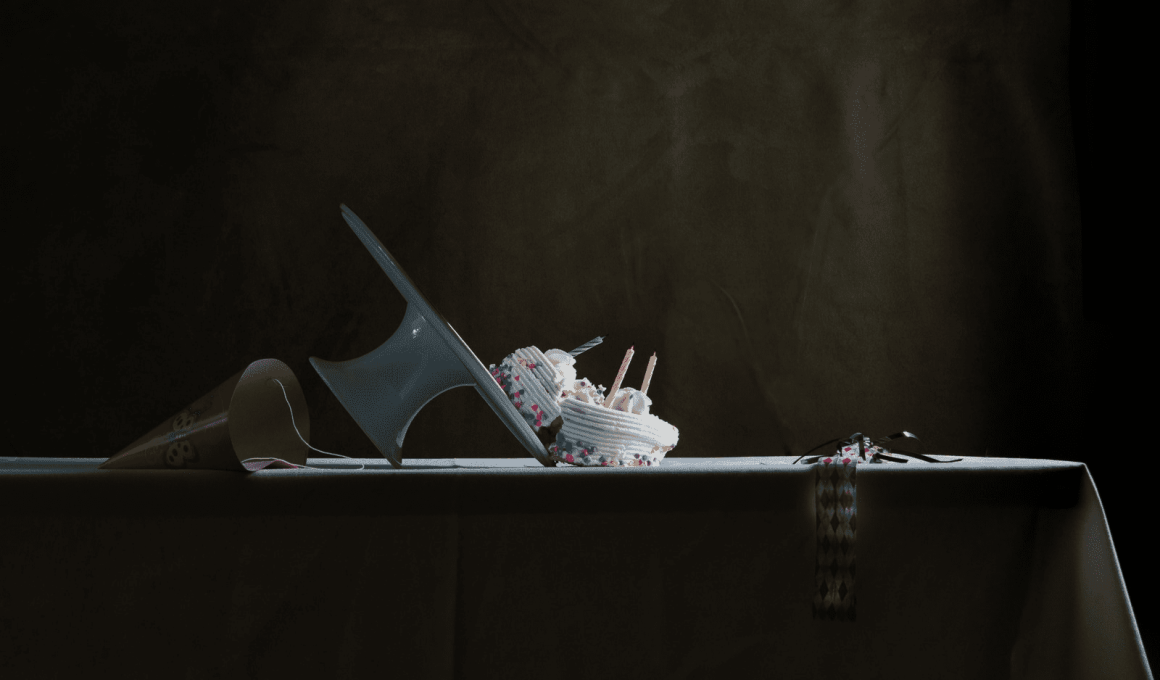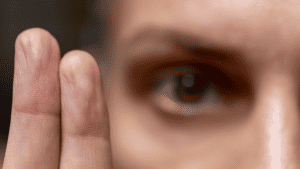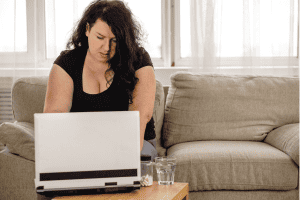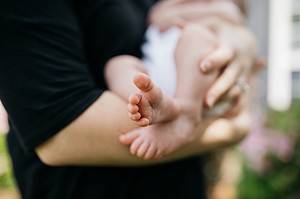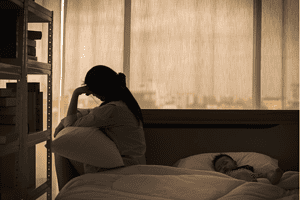Birth trauma – what happens when birthdays are also trauma anniversaries
For a parent who has experienced a traumatic birth, the anticipation of their child’s birthday can be painful. Let’s normalise realistic and diverse emotional responses to these anniversaries of trauma – they are real, and they are valid.
There’s a story we’re expected to tell on a child’s birthday, and it goes something like this:
“On this day, [insert number] of years ago, this perfect bundle of joy came into my life. From the moment I saw their face, all the pain and sacrifice became worth it. The sheer joy of seeing my baby for the first time washed away the trauma and the pain.”
However, for so many parents, especially those of us who have experienced birth trauma, birthdays simply aren’t that…simple.
Instead of being marked by an all-consuming joy, birth was marked by many different thoughts, feelings and experiences that may still affect you, today.
The reality of trauma is that the body and mind can hold memories of the traumatic experience, long after the situation itself has passed. These memories can be triggered by certain sights, sounds and places, as well as dates throughout the year that are significant to the trauma in some way (like birthdays).
Perhaps you notice that each year, around the time of the birthday you start to feel increasingly anxious, withdrawn or emotional, or unable to sleep. Or in the lead up you start to experience flashbacks or bad dreams.
These are just some of the signals that might indicate you may be experiencing a memory of trauma.
Emotional expectations vs reality surrounding birthdays following birth trauma
Birthdays can come with a lot of emotional expectations.
There can be many unrealistic expectations set either by ourselves, those around us, or society, that say we should ONLY feel:
- Excited
- Joyful
- Happy
- Content
- Filled with gratitude.
In reality though, what surfaces are a bundle of REALISTIC responses to a traumatic event, including:
- Isolation
- Sadness
- Dread
- Pain
- Joy
- Shame
- Failure
- Fury
- Jealousy
- Anxiety
- Grief
- Loneliness
- Gratitude
- Anger
- Insignificance
- Guilt
- Numbness
- Fear
- Resentment
- Overwhelm
It’s important to acknowledge that birthdays may bring up feelings of isolation, sadness and pain, at the same time as there may be happiness and joy.
Supporting your emotional wellbeing before, during and after the birthday
If you’re resonating with this post so far, here are some ways to support your emotional wellbeing in the lead up to (and on the day of) the birthday.
1. Celebrate with friends and family a week or two before the date (not on the date itself)
Choosing to celebrate your child’s birthday a week or two before the date can help take some of the pressure off around the trauma anniversary, giving you the time and space you need to process your own experience.
2. Acknowledge your emotions on the day and surround yourself with those who are fully aware of how you feel
It’s important to acknowledge and validate your emotions on the day of the trauma anniversary. Surround yourself with people who understand how you feel and who can provide emotional and practical support to you.
This could also mean spending time alone, or with a trusted friend or family member who understands your feelings.
If those around you are unsure how to support you, they may find it helpful to read my blog posts on: ‘How to hold space for those you love’ and ‘What not to do when offering support’.
3. Practise meeting your own needs
AKA self-care. Self-care will be crucial through this time. Meeting your needs will be crucial. Self-care looks different for every person, however it might include:
- Taking time to rest
- Engaging in activities that bring you joy
- Doing something nurturing just for you
- Doing a weekly self check-in – you can find a self check-in guide here
- Use grounding tools such as this easy mindfulness technique, throughout the day to help with flooding thoughts.
Find what works for you, and make time to practise your own version of self-care.
4. Speak with a therapist
Talking to a therapist who is experienced with trauma can be incredibly helpful. They can offer a safe and non-judgemental space to process your emotions and work through what you’re experiencing.
They can also offer guidance on strategies to support you as you navigate your path towards healing.
5. Begin healing work through trauma-informed therapies, like EMDR
Trauma-informed therapies, such as Eye Movement Desensitisation and Reprocessing (or EMDR), can be effective in helping you to work through and process traumatic experiences.
EMDR focuses on reducing the distress associated with traumatic memories. You can find out more about EMDR and how it can help after birth trauma, here.
I hope these supportive tools and ideas are helpful for you through this time, and if you’re struggling with the emotional impact of a traumatic birth experience, please know you’re not alone and your emotions are valid.
Remember that it’s okay to take time to feel, to nurture yourself, to reach out for support when you need it… and to celebrate your child’s birthday in a way that feels right for you.
If you would like someone to journey alongside you through this time, I’d love to chat with you about how I can support you.

My name is Fiona Rogerson and I am a registered Perinatal and Trauma Perth Counsellor and Childbirth Educator. I work with women and men to overcome emotional and psychological hurdles surrounding birth trauma, childhood trauma, traumatic experiences, as well as conception, pregnancy, postpartum, parenting and identity. I provide clinical supervision, mentoring and professional development training and workshops. I am based south of the river in Perth. To work with me, email at fiona@fionarogerson.com.au or phone 0402 017 425.


